Photo: Loodswezen


I regularly share my thoughts on safety and communication on LinkedIn. In today’s digital age, spreading valuable messages online is just as important as addressing them in person. Writing articles or hosting podcasts allows me to share insights and encourage others to learn and improve. Platforms like LinkedIn play a vital role in spreading knowledge and best practices across the industry.
An open culture onboard is the foundation for safety and success. It’s not just about technical competence but also about how you collaborate with others. By fostering open communication, respect, and teamwork, we can all contribute to a safer working environment. This is not just my experience as a pilot—it’s a principle we can all benefit from.
“Safety isn’t achieved alone. It’s a collective responsibility shared by the entire team”
Yet, fostering such openness is not always easy. The maritime industry’s "can-do" mentality sometimes overshadows safety concerns, delaying necessary interventions. My responsibility is to ensure everyone feels supported to prioritize safety without fear of criticism.
This brings me to the core point: safety. It’s not something you achieve alone. Safety is a shared responsibility across the team. I’ve observed that in safety-critical situations, the onboard culture often dictates how quickly and effectively solutions are found. When people feel comfortable raising concerns, action can be taken swiftly, enhancing overall safety. Conversely, fear of speaking up can lead to hazardous situations.
In my own organization, the Dutch Pilotage Service, we are actively working to implement an open culture. Initiatives like “Stop the Job”—where anyone has the authority to halt operations in dangerous situations—are making a real difference.
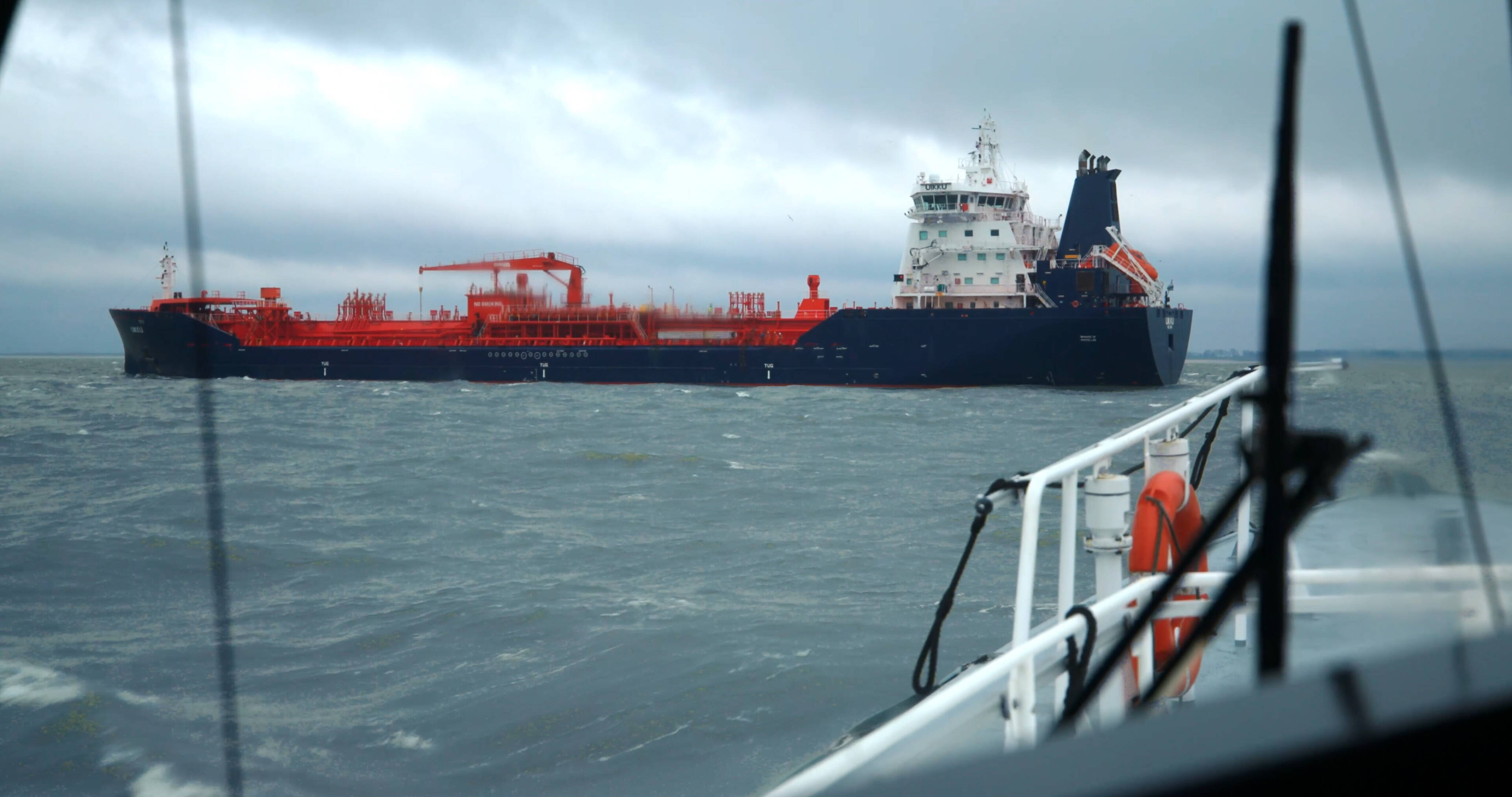
If something isn’t right—a loose ladder, unsafe equipment, or a poorly executed procedure—it must be addressed immediately. However, the approach is crucial. Nobody benefits from anger or authoritarianism. Addressing issues calmly and respectfully paves the way for constructive solutions.
One of the most valuable lessons I’ve learned in the maritime sector is the importance of effective communication. When I board a ship, I first focus on building rapport with the bridge team. Integrating into the team and fostering trust with colleagues is critical. Coordination with helmsmen and officers ensures mutual understanding, which greatly simplifies communication—especially when things go wrong. Instead of merely pointing out faults, it’s far more productive to collaborate on solutions.
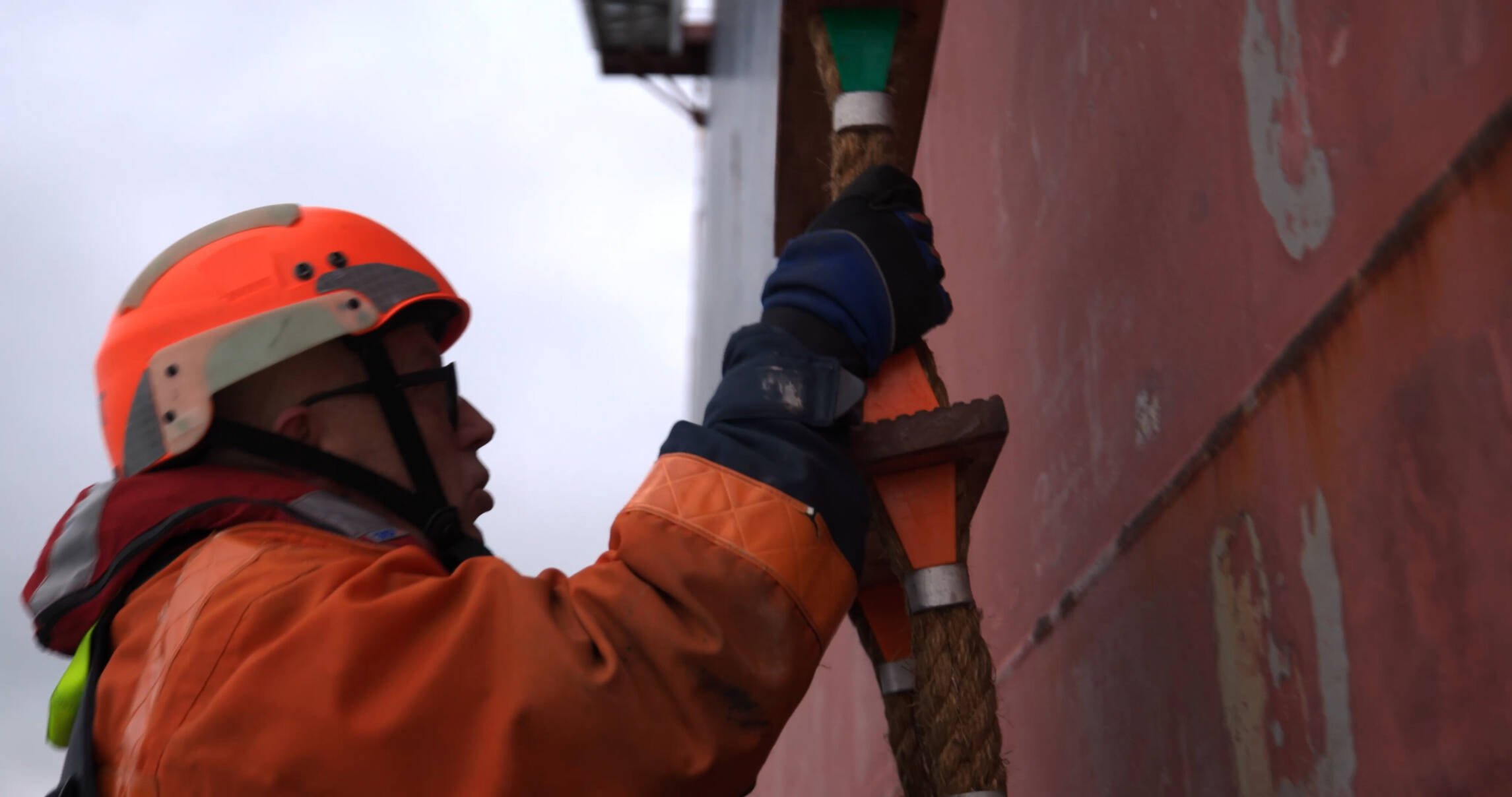
“An open culture is only effective if everyone feels free to voice concerns and work together on solutions”
As a maritime pilot, I deal daily with safety and communication aboard ships—two elements that are critical in my profession. It’s not just about executing your duties; it’s about how you work with others. Time and again, I’ve seen that the atmosphere and culture onboard are the foundation of a safe and efficient work environment. True effectiveness is only achieved when everyone feels free to voice concerns, address issues, and work together toward solutions.
The Impact of Culture on Safety
When I first started as a pilot, I often encountered rigid hierarchies onboard ships. Breaking through those walls of authority, especially with captains who rule with an iron fist, was challenging. But I strongly believe in the power of open communication. An open culture ensures that everyone feels heard and unafraid to report mistakes or ask questions. Vulnerability is essential—not only for individuals but for the entire team to thrive.
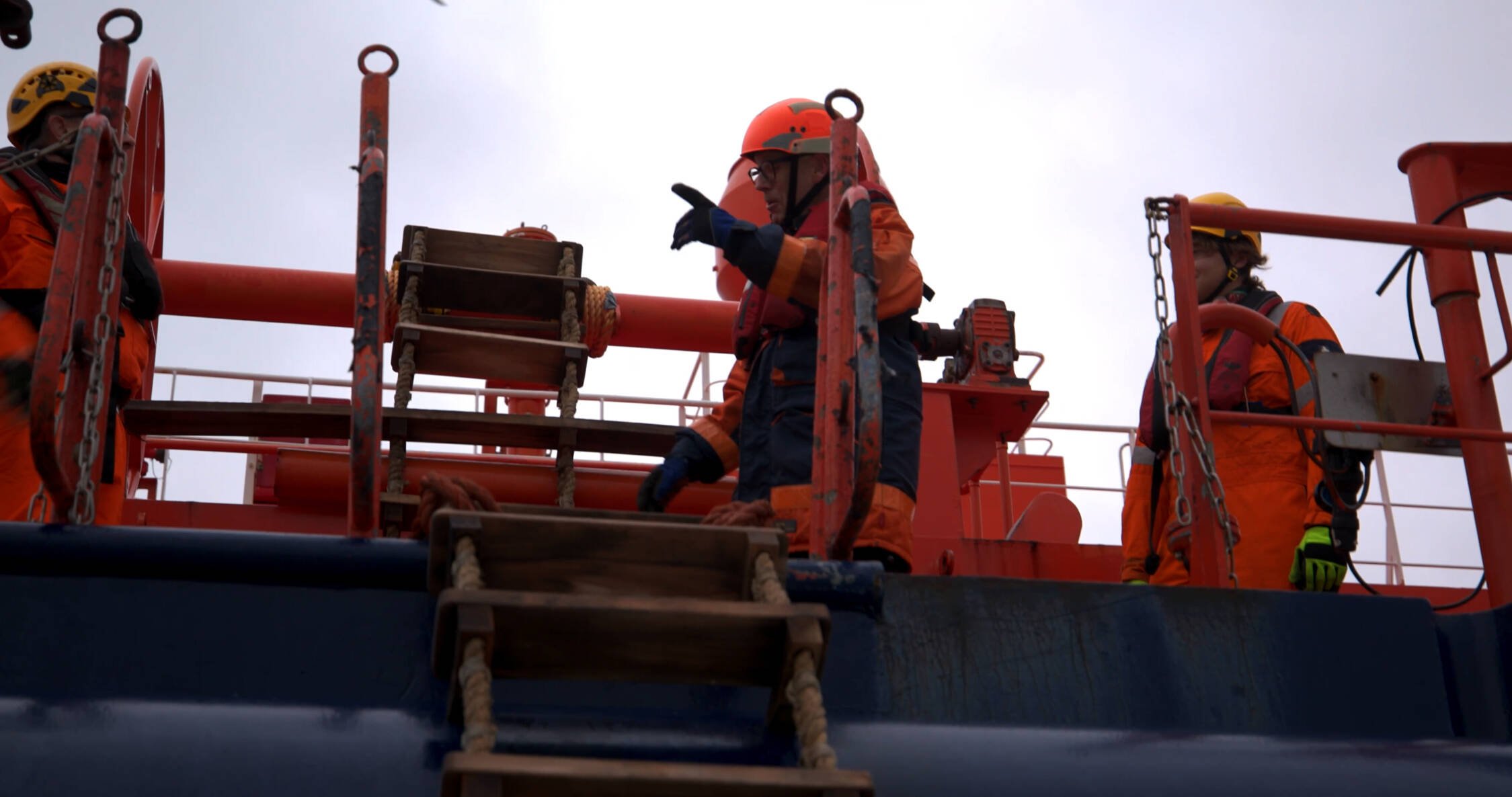
at Sea!
Join Work Safely at Sea and help us spread the important message about safety further. We are looking for companies, ships, and workers to share their experiences. Your story can inspire others and make them aware of the crucial role safety plays in our work. Whether you have a success story or a lesson learned from a near miss, your contribution can make a difference. Fill in the form and join our mission to make the sea a safer place to work for everyone

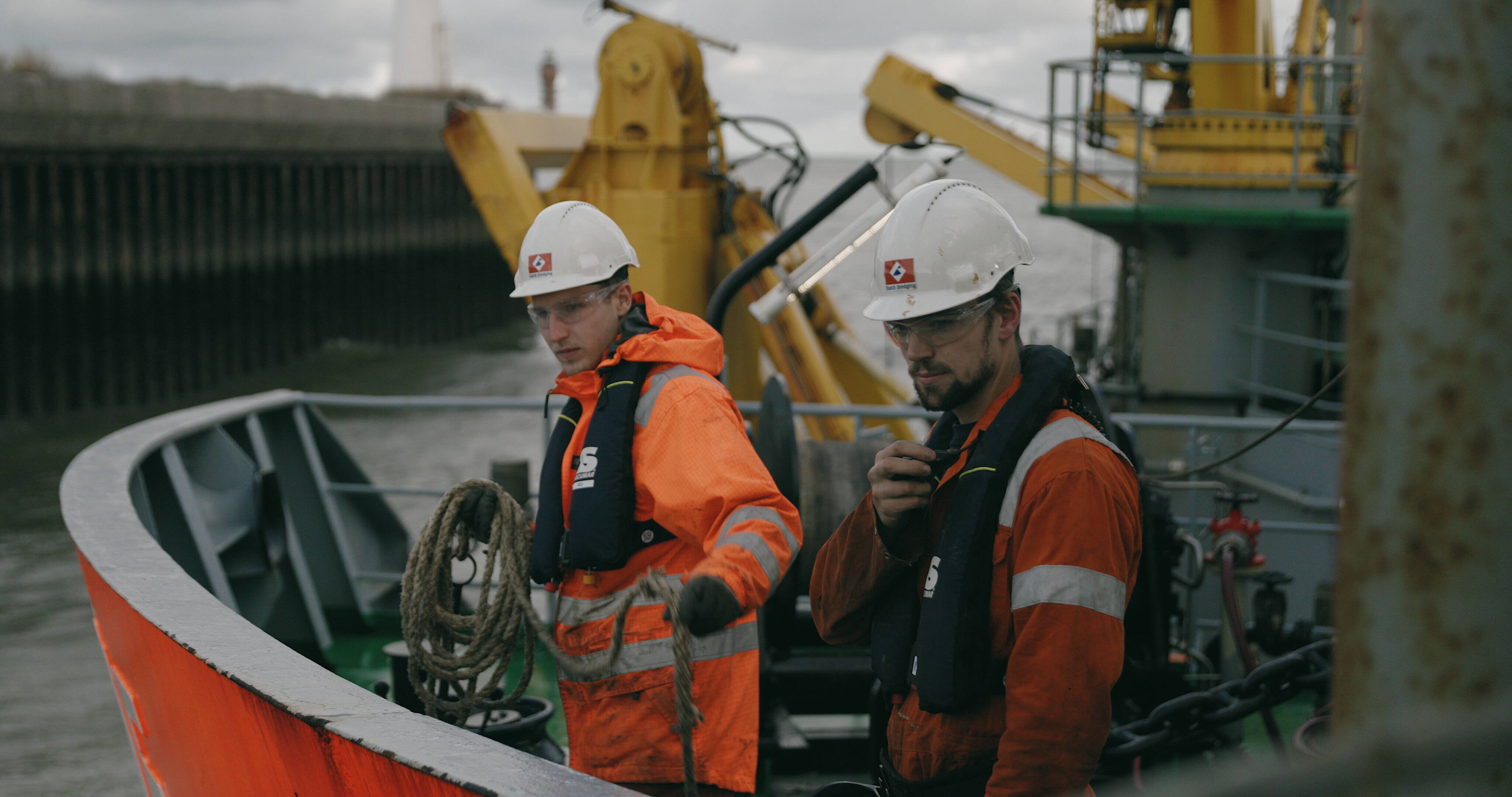
Photo: Loodswezen

Foto: KNRM

I regularly share my thoughts on safety and communication on LinkedIn. In today’s digital age, spreading valuable messages online is just as important as addressing them in person. Writing articles or hosting podcasts allows me to share insights and encourage others to learn and improve. Platforms like LinkedIn play a vital role in spreading knowledge and best practices across the industry.
An open culture onboard is the foundation for safety and success. It’s not just about technical competence but also about how you collaborate with others. By fostering open communication, respect, and teamwork, we can all contribute to a safer working environment. This is not just my experience as a pilot—it’s a principle we can all benefit from.
“Safety isn’t achieved alone. It’s a collective responsibility shared by the entire team”
Yet, fostering such openness is not always easy. The maritime industry’s "can-do" mentality sometimes overshadows safety concerns, delaying necessary interventions. My responsibility is to ensure everyone feels supported to prioritize safety without fear of criticism.

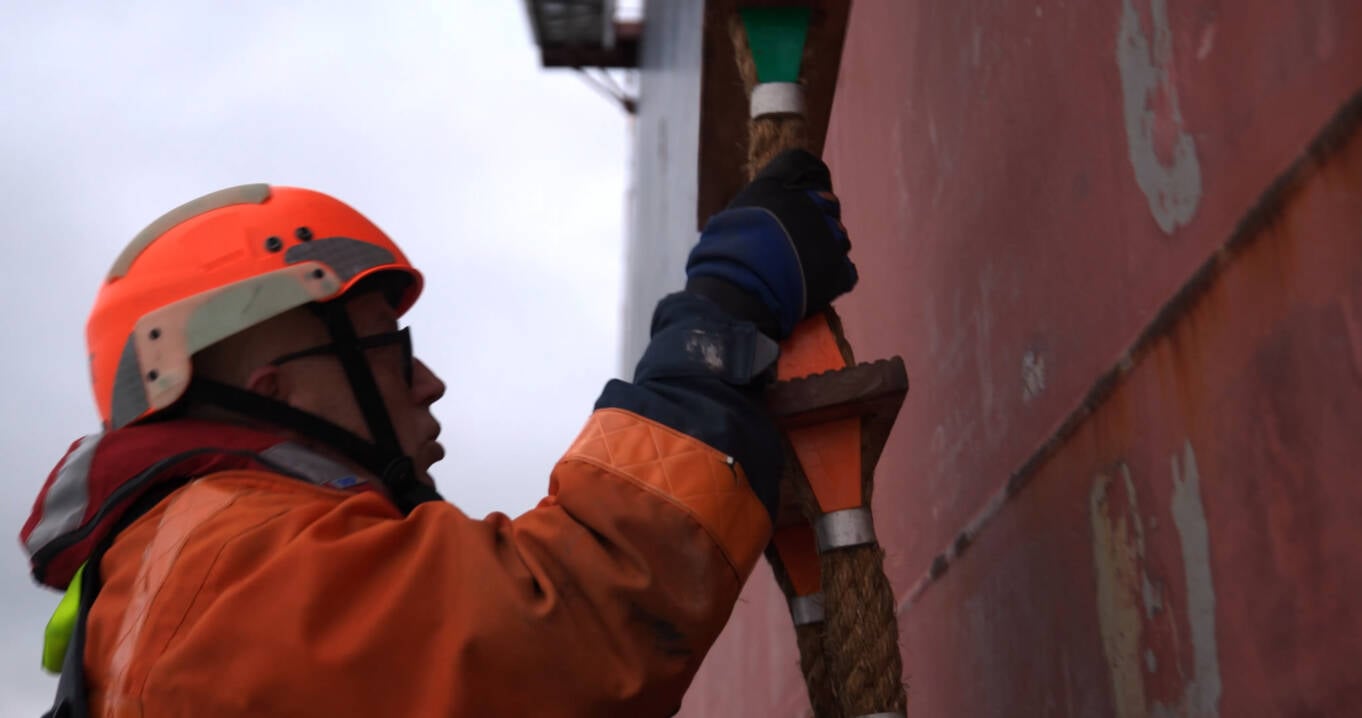
“An open culture is only effective if everyone feels free to voice concerns and work together on solutions”
If something isn’t right—a loose ladder, unsafe equipment, or a poorly executed procedure—it must be addressed immediately. However, the approach is crucial. Nobody benefits from anger or authoritarianism. Addressing issues calmly and respectfully paves the way for constructive solutions.
One of the most valuable lessons I’ve learned in the maritime sector is the importance of effective communication. When I board a ship, I first focus on building rapport with the bridge team. Integrating into the team and fostering trust with colleagues is critical. Coordination with helmsmen and officers ensures mutual understanding, which greatly simplifies communication—especially when things go wrong. Instead of merely pointing out faults, it’s far more productive to collaborate on solutions.
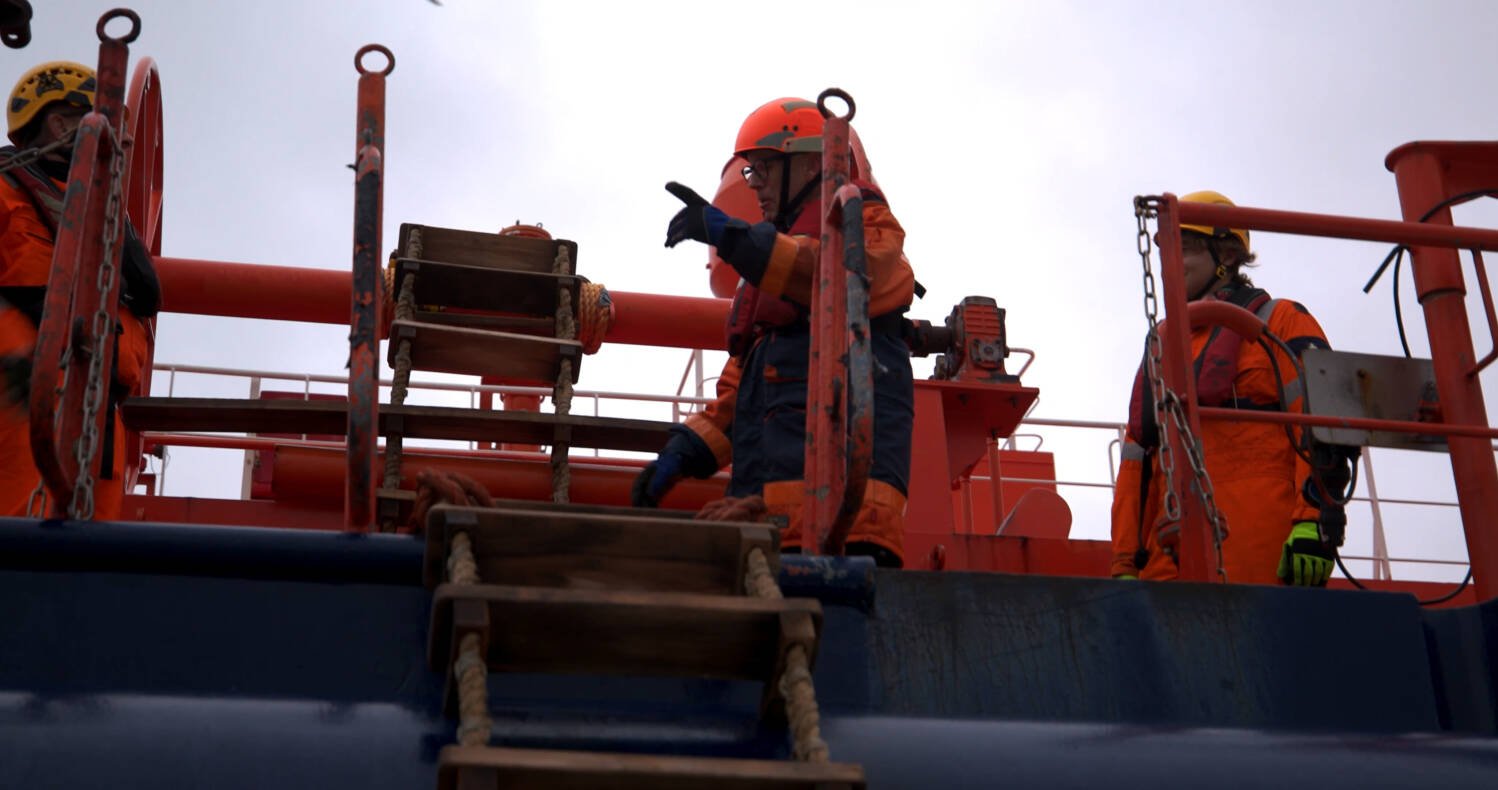
As a maritime pilot, I deal daily with safety and communication aboard ships—two elements that are critical in my profession. It’s not just about executing your duties; it’s about how you work with others. Time and again, I’ve seen that the atmosphere and culture onboard are the foundation of a safe and efficient work environment. True effectiveness is only achieved when everyone feels free to voice concerns, address issues, and work together toward solutions.
The Impact of Culture on Safety
When I first started as a pilot, I often encountered rigid hierarchies onboard ships. Breaking through those walls of authority, especially with captains who rule with an iron fist, was challenging. But I strongly believe in the power of open communication. An open culture ensures that everyone feels heard and unafraid to report mistakes or ask questions. Vulnerability is essential—not only for individuals but for the entire team to thrive.
Collaboration
Culture Onboard
This brings me to the core point: safety. It’s not something you achieve alone. Safety is a shared responsibility across the team. I’ve observed that in safety-critical situations, the onboard culture often dictates how quickly and effectively solutions are found. When people feel comfortable raising concerns, action can be taken swiftly, enhancing overall safety. Conversely, fear of speaking up can lead to hazardous situations.
In my own organization, the Dutch Pilotage Service, we are actively working to implement an open culture. Initiatives like “Stop the Job”—where anyone has the authority to halt operations in dangerous situations—are making a real difference.

Join Work Safely at Sea and help us spread the important message about safety further. We are looking for companies, ships, and workers to share their experiences. Your story can inspire others and make them aware of the crucial role safety plays in our work. Whether you have a success story or a lesson learned from a near miss, your contribution can make a difference. Fill in the form and join our mission to make the sea a safer place to work for everyone
at Sea!
een veilige en productieve plek voor iedereen"
